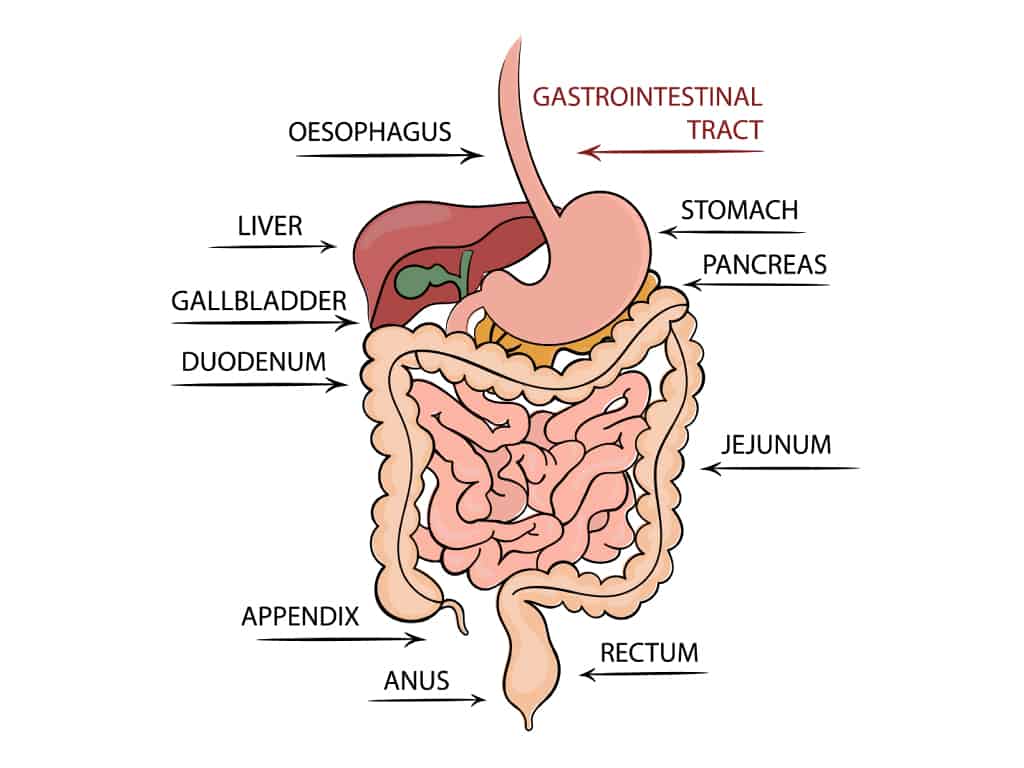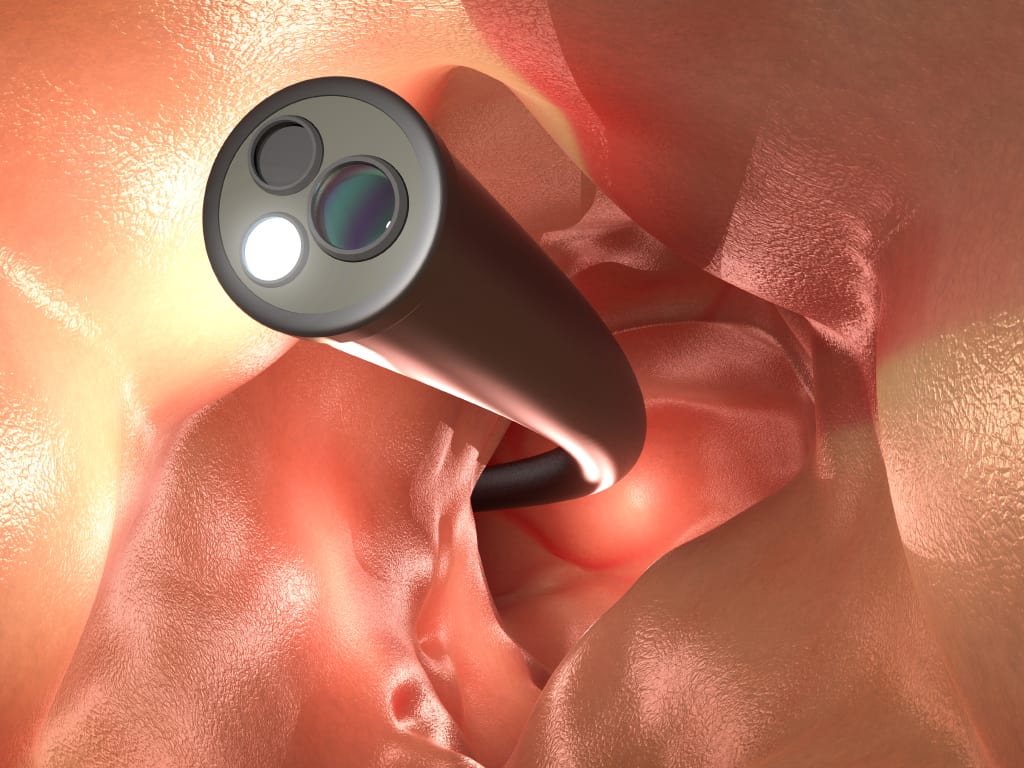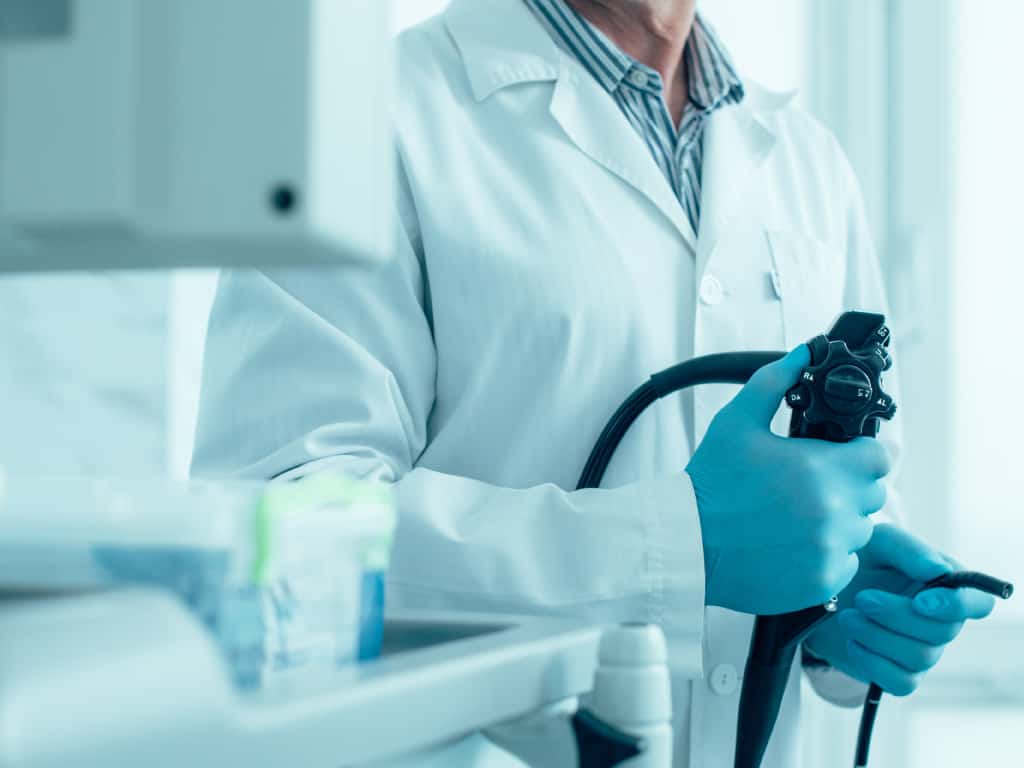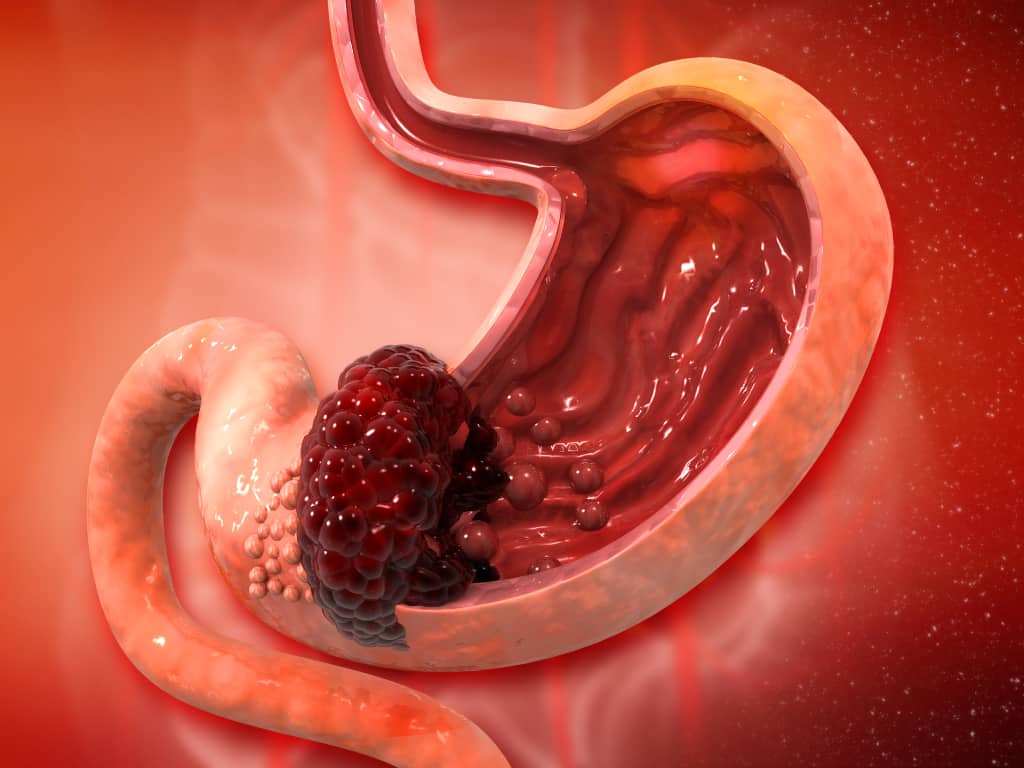What is Gastrointestinal Cancer Screening?

The gastrointestinal tract (GIT) is an 8-metre-long pathway that extends from the mouth to the anus. The food we consume is broken down by our oral cavity before passing into the oesophagus, stomach, small intestine (the duodenum, jejunum, and ileum), and eventually into the large intestine (the colon and rectum) before being excreted out through the anus as stools.
In the GIT, water and nutrients from the food we eat are absorbed and processed by the cells lining the gut. Waste products are also removed from our bodies through the rectum and colon. But as we age, these cells may undergo changes in their DNA (mutations) and become abnormal. These abnormal cells might be malignant in nature, resulting in the formation of a tumour in the gastrointestinal tract. While the definitive causes for these mutations are not known, they can range from genetic predisposition to lifestyle and environmental causes and can vary between the different types of gastrointestinal cancers.
Globally, gastrointestinal cancers are quite common, accounting for 35% of all cancer-related deaths. According to the Singapore Cancer Registry Annual Report 2021, colorectal cancer was the second most common cancer in men and women in Singapore, accounting for 16.3% of all cancer cases in men and 12.9% of that in women. While other gastrointestinal cancers, such as stomach cancer and pancreatic cancers, are less common, they too, carry a high risk of morbidity and mortality.
Given the large cancer burden worldwide and in Singapore, a myriad of screening programmes have emerged in the country over the years to aid in the early detection of cancers. Cancer screening in Singapore is typically performed on those who do not show any symptoms so that the condition can be caught early when it is still curable. It is a form of secondary prevention that aims to detect cancers in their early stages so that the appropriate treatment can be commenced. This is important as advanced-stage cancers are invariably difficult to treat and can lead to a poor outcome. If your cancer screening tests show an abnormal result, you may need to have more tests done to confirm the diagnosis. These investigations are referred to as diagnostic tests.
What are the goals of Cancer Screening Tests in Singapore?
While cancer screening cannot be used as a diagnostic modality, it can be utilised to achieve the following objectives:
- Reduce the prevalence of disease within a population (cancer morbidity)
- Reduce the number of deaths caused by cancer within a specific population over a defined period (cancer mortality)
What tests are used for Gastrointestinal Cancer Screening in Singapore?
While there are many cancer screening modalities in Singapore, colorectal cancer is the most commonly screened gastrointestinal cancer as it is one of Singapore’s leading causes of death, affecting over 1,865 cases annually.
A note from our Gastroenterologist Dr Benjamin Yip: While colorectal cancer screening is commonly carried out in the country, no national gastric cancer screening programmes have been recommended by the Ministry of Health (MOH) in Singapore. As a nation that is an intermediate risk zone for gastric cancer, it is imperative that you consult a Gastroenterologist to check if you require cancer screening. In addition, it is important to note that gastric cancers typically affect those who are young (in their 30s or older), making early detection an important factor in achieving a favourable treatment outcome.
The most common gastrointestinal cancer screening tools include a colonoscopy and faecal testing with a faecal immunochemical test (FIT) kit, which requires a stool sample.
FIT Test
In Singapore, FIT kits are distributed at no cost by the Singapore Cancer Society (SCS) to those aged 50 and above (Singaporeans and Permanent Residents). This simple and safe colorectal cancer preliminary screening test can be carried out from the comfort of your home and should ideally be done annually. Although readily available, these tests are less sensitive to detecting precancerous polyps than a colonoscopy.
Colonoscopy

A colonoscopy is the mainstay method for detecting colorectal polyps (precursors to colorectal cancer). This procedure involves the insertion of a long, flexible tube (with a light and camera at one end) through the anus and is guided upwards into the rectum and colon. This allows the Gastroenterologist to visualise the lining of the colon and detect any polyps, as well as any masses, tumours or signs of bleeding. The attachment of specialised tools to the endoscope also allows the Gastroenterologist to remove colorectal polyps during the colonoscopy (polypectomy).
For gastric cancers, cancer screening in Singapore is done on a discretionary basis, which means that the indications for screening are based on the individual’s medical history and risk factors for stomach cancer.
Gastroscopy

When it comes to gastric cancers, an Oesophago-Gastro-Duodenoscopy (OGD) or gastroscopy is usually performed to assess for any abnormal cells in the stomach. This procedure is similar to a colonoscopy and employs a thin, hollow and flexible tube with a video camera on one end. This tube is inserted into the mouth to visualise the oral cavity, oesophagus and stomach. If an abnormal tissue is detected, a tissue sample will be taken and sent to a pathologist – a healthcare professional skilled in examining tissues in the body, for further analysis.
GASTROClear
Although gastric cancer screening in Singapore is not routinely performed, advancements in technology have brought about a molecular blood test to help with the early detection of gastric cancers – GASTROClear. This blood test measures mRNA biomarkers, which are present in high levels in patients, even when the cancer is in its early stages. As most early-stage stomach cancers are asymptomatic (no symptoms), this blood test will play a pivotal role in detecting such cancers. With a sensitivity rate of up to 86% and a specificity rate of up to 89%, GASTROClear can assess your risk for stomach cancer and ascertain if you need to follow up this test with a gastroscopy.
Do I need to undergo Gastrointestinal Cancer Screening in Singapore?
In general, colorectal cancer screening in Singapore is recommended for all individuals above the age of 50 and older.
For other types of gastrointestinal cancer screening in Singapore, screening is discretionary and will usually only be recommended if you have a medical history that puts you at high risk of the cancer. Furthermore, various care options and screening follow-ups will be discussed with you along the way with your Gastroenterologist if you are proven to be at higher-than-average risk of cancer.
Summary

Cancer screening is pivotal in the early detection of cancers, leading to good outcomes. It is essential that you be proactive and aware of the various cancer screening programmes in Singapore that are available and accessible to you. For more information on our specialised gastrointestinal screening programmes, do reach out to Alpha Digestive & Liver Centre. Our experienced team will be more than happy to guide you.
Some red flags/warning signs that might warrant a trip to a Gastroenterologist include:
- A sudden, unexplained, and unintentional weight loss
- Recurrent rectal bleeding (blood in stools)
- Black stools (melena)
- A sudden change in bowel output over the span of a few months, e.g., mixed diarrhoea and constipation, having very thin stools (as thin as a pencil)
In addition, it is also good to continually maintain a healthy lifestyle to minimise your risk of getting gastrointestinal cancer. Lifestyle modifications that will help greatly in the long run include quitting smoking, reducing alcohol usage, engaging in an active lifestyle with regular exercise, and maintaining a healthy weight and diet.
References
- National Registry of Diseases Office. (2022). https://nrdo.gov.sg/docs/librariesprovider3/default-document-library/scr-2019_annual-report_final.pdf?sfvrsn=fa847590_0
- Kisling, L. A., & Das, J. M. (2019). Prevention Strategies. Nih.gov; StatPearls Publishing. https://www.ncbi.nlm.nih.gov/books/NBK537222/
- Maxim, L. D., Niebo, R., & Utell, M. J. (2014). Screening tests: a review with examples. Inhalation Toxicology, 26(13), 811–828. https://doi.org/10.3109/08958378.2014.955932
- Cancer Screening. (n.d.). Www.nccs.com.sg. Retrieved May 7, 2022, from https://www.nccs.com.sg/patient-care/cancer-types/pages/cancer-screening.aspx
- Colorectal Cancer Campaign. (n.d.). Www.singaporecancersociety.org.sg. Retrieved May 7, 2022, from https://www.singaporecancersociety.org.sg/events/campaigns/colorectal-cancer-campaign
- National Cancer Centre Singapore (SingHealth). Cancer Screening. Retrieved January 18, 2024, from https://www.nccs.com.sg/patient-care/cancer-types/pages/cancer-screening.aspx
- National University Cancer Institute Singapore. Colorectal Cancer. Retrieved January 18, 2024, from https://www.ncis.com.sg/Cancer-Information/About-Cancer/Pages/Colorectal-Cancer.aspx
- Singapore Cancer Registry. Annual Report 2021. Retrieved January 18, 2024, from https://www.nrdo.gov.sg/docs/librariesprovider3/default-document-library/scr-ar-2021-web-report.pdf?sfvrsn=591fc02c_0

